'He'll change the world': George Floyd's family pays emotional tribute as crowds flock to funeral
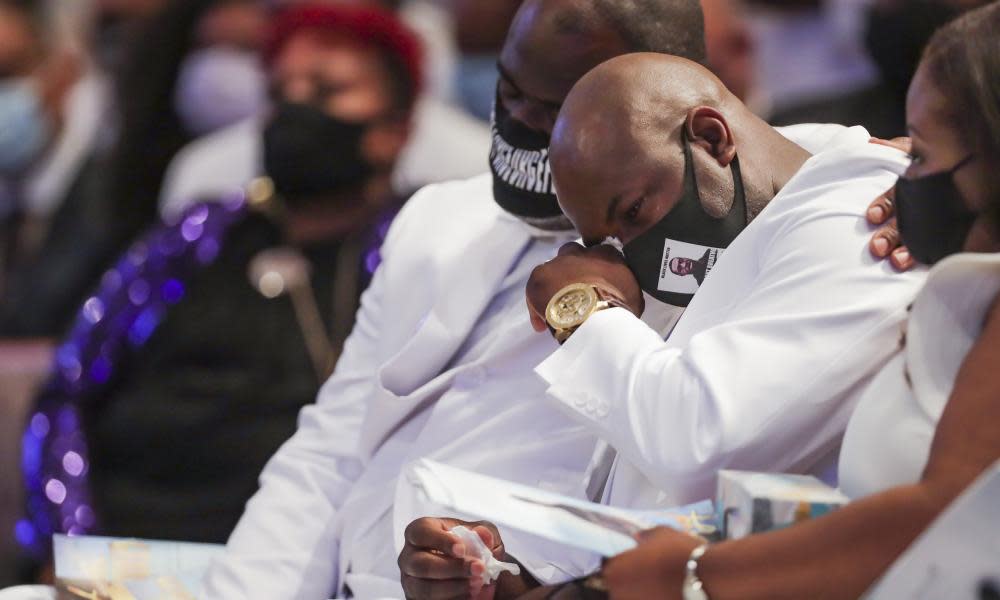
George Floyd’s life was celebrated at his funeral on Tuesday, with eulogies that honored him as a father, brother, athlete and mentor whose death sparked a global reckoning over police brutality and racial prejudice.
Crowds descended on a church in Houston, Texas, after Floyd’s body was returned to his childhood hometown to be laid to rest in a cemetery in suburban Pearland next to his mother, whom he called out for as he lay dying with a police officer’s knee on his neck in May.
Related: George Floyd: large procession of mourners expected to follow private Texas funeral – live
“Third Ward, Cuney Homes, that’s where he was born at,” Floyd’s brother Rodney told mourners at the Fountain of Praise church, on the sixth day of mourning for Floyd in three cities. “But everybody is going to remember him around the world. He is going to change the world.”
Radio stations observed moments of silence. City officials paid tribute on social media. In New York, traders at the stock exchange paused for eight minutes and 46 seconds to mark the length of time the Minneapolis police officer Derek Chauvin was filmed kneeling on Floyd, impervious to the man’s pleas for breath and mercy.
Since he was killed on 25 May, millions around the world have watched video footage of Floyd’s death taken by a witness on the sidewalk and listened to the 46-year-old struggling to say “I can’t breathe”.
Brooke Williams, Floyd’s niece, delivered an emotional tribute describing her uncle as “spiritually grounded, an activist” who “moved people with his words”.
“My name is Brooke Williams, George Floyd’s niece, and I can breathe,” she began. “[As] long as I’m breathing, justice will be served.”
“Lives like George will not matter until somebody pays the cost for taking their lives,” said the civil rights advocate the Rev Al Sharpton in his eulogy. Celebrating the passion of the mass protests, he added: “All over the world I’ve seen grandchildren of slave masters tearing down slave master statues.”
Outside the church, dozens gathered to honor their fellow Houstonian, wearing shirts reading “I can’t breathe” and “Black Lives Matter”.
“The way his life was taken, he wasn’t able to go through due process,” said Savant Moore, 35. “We have to stand together to make sure that doesn’t happen again.”
Ben Crump, the civil rights attorney representing Floyd’s family, had earlier led a press conference with families of other victims of violent policing: Pamela Turner in Texas, Trayvon Martin in Florida, Ahmaud Arbery in Georgia, Eric Garner in New York, Botham Jean in Texas, and Michael Brown in Missouri: a few representing many more.
“George Floyd’s life mattered, and black lives matter,” Crump said.
Protesters have claimed some victories – charges for all four now former officers at the scene of Floyd’s killing, and a high bail for Chauvin, the officer who kneeled on his neck. The case is seen by many as the tipping point for an unjust system waiting to be tipped.
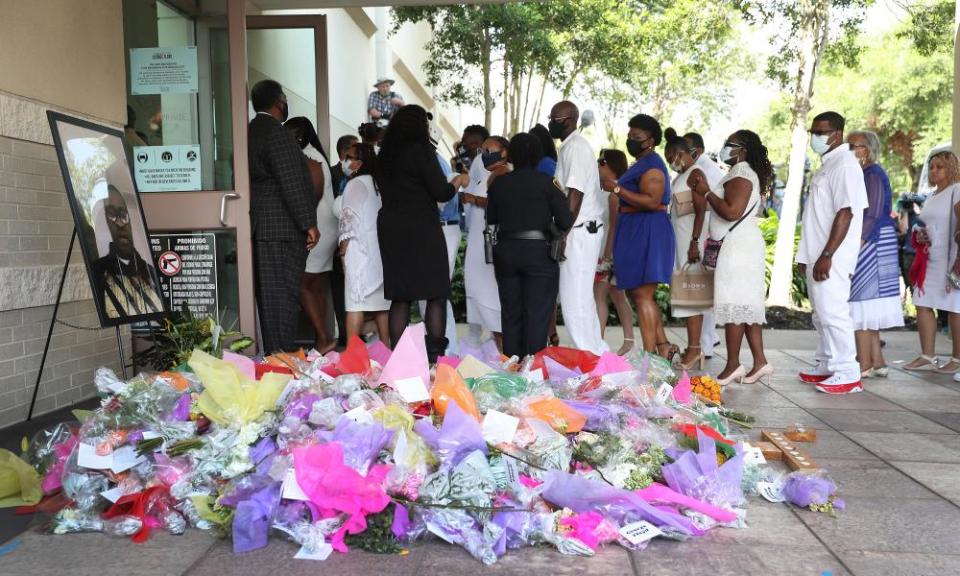
Alongside Floyd’s name, demonstrators in cities across the country shouted the names of their own who had been killed by law enforcement officers, the overwhelming majority of whom kept their jobs and never faced criminal charges. The officers who shot and killed 26-year-old Breonna Taylor as she slept in her Louisville, Kentucky, apartment in March have not been charged.
The weeks of unrest devolved into instances of looting and destruction on the fringes that prompted some jurisdictions to impose unprecedented curfews and call in the national guard for support. But the protesters coast to coast have been mostly peaceful.
Like Floyd’s killing, instances of use of force by police at these protests were captured on video. Officers filmed assaulting protesters were charged. Calls to defund police departments have led to some action by local leaders around the country, a change from recent history. In Minneapolis, the city council secured a veto-proof majority in favor of dismantling the entire troubled police force.
Among the line of buses and cars at the front of the church, Savant Moore shared a sentiment he posted on Facebook in the aftermath of the killing: “It really took a global pandemic with no sports, no concerts, no vacations to get the world to sit down and have no choice but to watch what’s really happening to black people in America with zero distractions.”
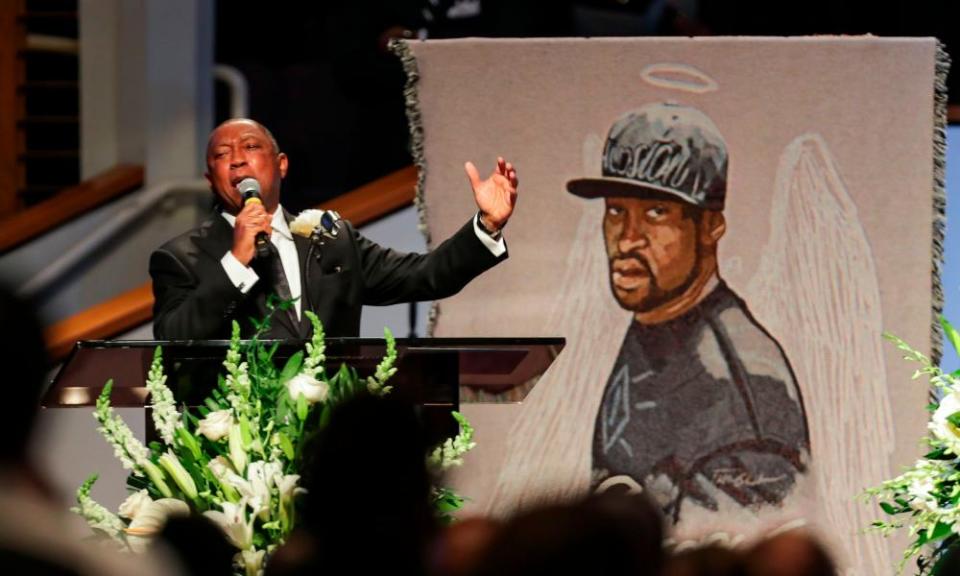
Moore was an army ranger who had been deployed four times, once in Afghanistan and another time in Iraq. But he said it was here in his home country that he was scared. “I have a college degree from Howard University. I’m an entrepreneur. And this is my America. Every day, I still have to worry about whether people will not like me because of the color of my skin, or if I might not make it back home to my children because I encounter a police officer for a routine traffic stop.”
Joe Biden, Donald Trump’s Democratic opponent in November’s election, visited Floyd’s family on Monday and delivered a remote message at the funeral, calling for change.
“Today, now, is the time, the purpose, the season to listen and heal,” Biden said. “Now is the time for racial justice. That’s the answer we must give to our children when they ask why. Because when there is justice for George Floyd, we will truly be on our way to racial justice in America.”
Tuesday’s funeral service was for family and friends only, but Tamecia Dogbe, 41, still drove two and a half hours from Austin with her sister and 12-year-old niece to stand outside the church in the sweltering heat and humidity.
“It feels like a part of history, something I want my niece to witness,” she said. “Ten years from now, she might be able to see this in a history book.”
She can only pray that in 10 years, these sort of funerals – services for victims of police killings – will be a thing of the past as well.
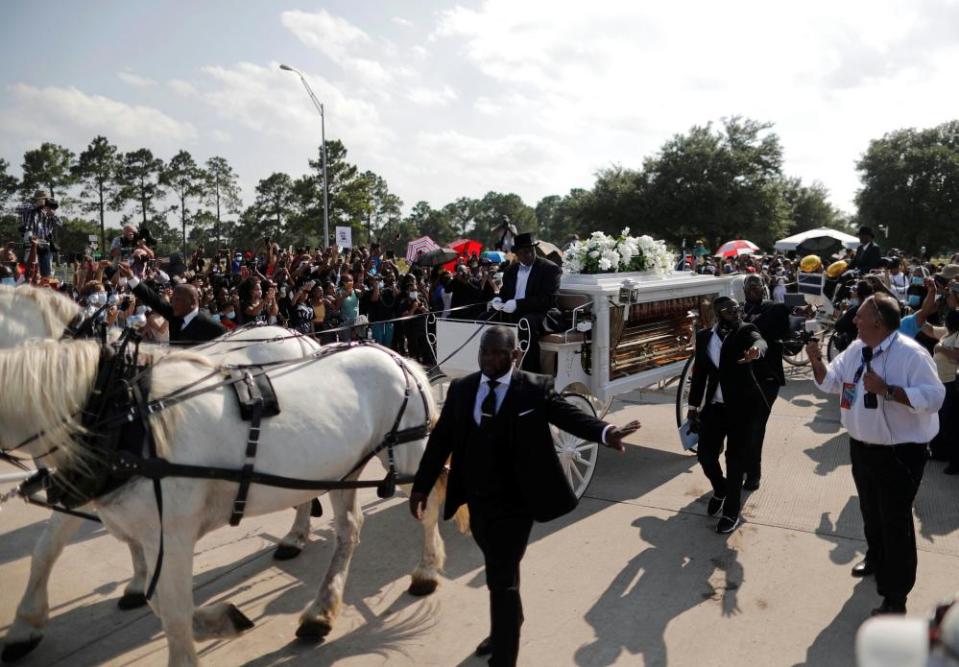
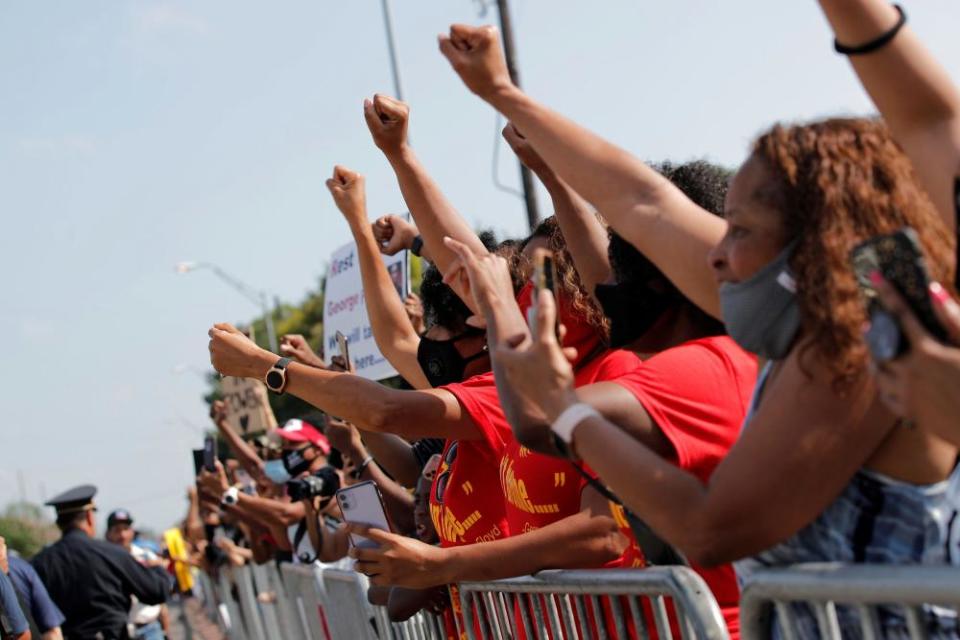
Floyd’s golden casket was taken by horse-drawn carriage to the cemetery, where he was interred next to his mother.
Officials shut down the roads from the church to the cemetery, including a section of major toll road, to make way for the procession. Along the route, groups of supporters waved “Black Lives Matter” signs and cheered for Floyd.
About a mile from the cemetery entrance, hundreds lined the streets, holding up umbrellas and makeshift tents to protect themselves from the unrelenting sun. They doodled chalk messages of “rest in power” and “be the change” along the sidewalk, and periodically broke out in chants: “Say his name! George Floyd!”
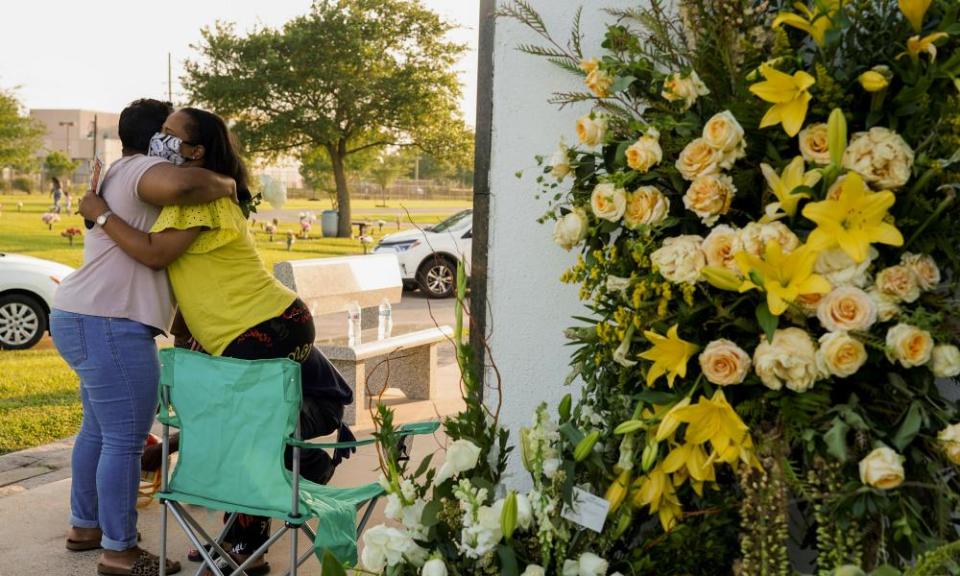
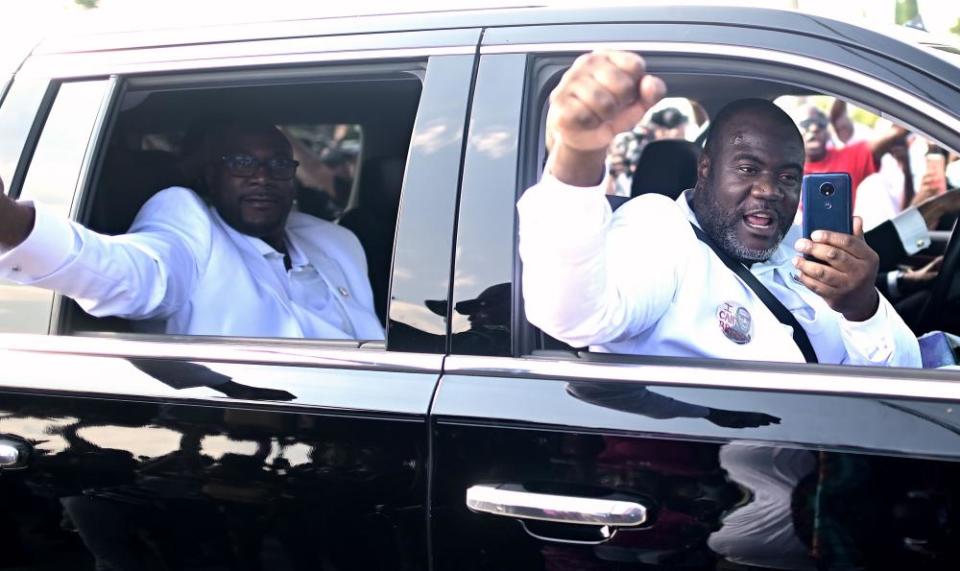
Herman Bell, 37, was on his way with his family to the eye doctor when he decided to stop to watch the procession. “We lost a great man from the Third Ward,” Bell said.
“I want my kids to understand that when they go to school, they need to go to school and better themselves,” he said. “This man went out and bettered the world.”
There was a sense in Houston that in times like these, people come out to support the family even if they didn’t know them. Schon Carter, 40, came out on Tuesday to show not just her support for the family, but to show that “we’re all standing in one accord”.
“It feels good that despite the heat, the weather, that people actually took the time out to show their respect for the family,” Carter said.
The last few weeks have been “mind-opening” for her, she said. “I don’t know what to expect for the future, but it’s definitely time for a change.”
The Associated Press contributed to this report
